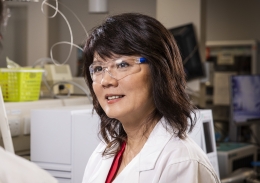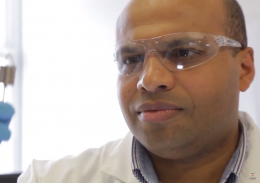UNSW receives $4.9m funding for new ARC Training Centre for The Global Hydrogen Economy
The new research centre will aid development of new cost-effective hydrogen technologies – placing Australia firmly at the forefront of the hydrogen economy.
The new research centre will aid development of new cost-effective hydrogen technologies – placing Australia firmly at the forefront of the hydrogen economy.

Researchers from UNSW Sydney have secured more than $4.9 million in Australian Research Council (ARC) funding for development of the ARC Training Centre for The Global Hydrogen Economy. The UNSW project, which was awarded funding over five years, will engage Australia’s best researchers to develop hydrogen technologies and innovations to aid the world’s transition to renewable energies.
The announcement follows the recent launch of the Hydrogen Energy Research Centre at UNSW. The first of its kind university-industry partnership with Providence Asset Group (PAG) further supports the federal government’s National Hydrogen Strategy and the ambition for annual hydrogen exports to reach $10 billion by 2040.

Scientia Professor Rose Amal AC
Joint project leads for the new ARC Training Centre, Scientia Professor Rose Amal and Professor Kondo-Francois Aguey-Zinsou, will bring together global research institutions, industry partners, government agencies and hydrogen start-ups to form a multi-disciplinary and international consortium.
The Centre's focus on key themes includes: the production, storage, and utilisation of hydrogen; development of the right safety systems and controls; and commercialisation, public acceptance, and the skills industry will require in a hydrogen economy.
UNSW Deputy Vice-Chancellor, Research, Professor Nicholas Fisk said the new Centre will further enhance UNSW’s role in Australia’s plans for becoming a major player in the global hydrogen market.
“Australia is well-positioned to capitalise on the emerging global growth of hydrogen. However, to be competitive and produce at scale, we need cost-effective hydrogen technologies and capabilities for transitioning hydrogen into an array of industries,” Professor Fisk said.

Professor Kondo-Francois Aguey-Zinsou
“The project will have far-reaching and broad opportunities both to generate innovative approaches to exporting the product and to create a highly skilled future workforce, all the while benefitting the environment and as a result, our climate.”
The new Centre is one of five projects to share $24 million in funding announced by Minister for Education Dan Tehan today. In a media release Mr Tehan said, “Our Government is investing in research that will foster strategic partnerships between university-based researchers and industry organisations, to find practical solutions to challenges facing Australian industry.
“We want universities to be even more entrepreneurial and engaged with industry. These training centres will drive Australian growth, innovation and competitiveness, improving the lives of everyday Australians, through drug design, and developing new opportunities for business, through the scale-up of hydrogen generation and its export.”
UNSW will host the new Centre. Partner institutions include University of Newcastle (through the NUW Alliance), University of Queensland, Curtin University and University of Sydney.